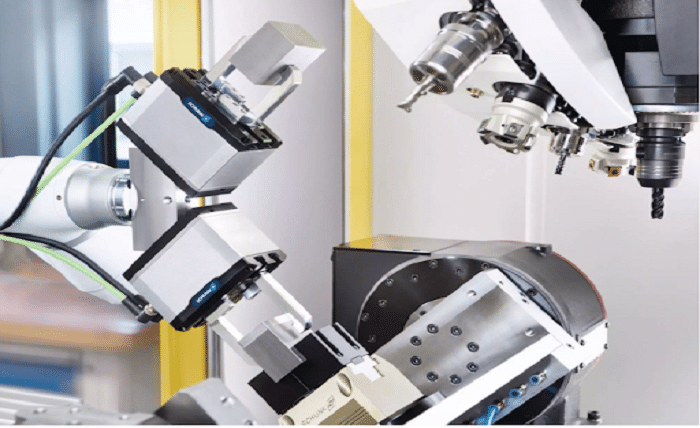Health information technology jobs are becoming increasingly vital as the healthcare industry embraces digital transformation. These roles involve managing health data, ensuring the security of patient information, and optimizing healthcare delivery through technology. In this guide, we’ll delve into various aspects of health information technology jobs, highlighting the opportunities and skills required to succeed in this dynamic field.
1. Health Information Technology Jobs
Health information technology jobs encompass a wide range of roles focused on the management and use of health information systems. These roles are essential for improving patient care, ensuring data security, and supporting healthcare providers with efficient technological solutions. From electronic health records (EHR) specialists to health informatics analysts, health IT professionals play a crucial role in modern healthcare.
2. Types of Health Information Technology Jobs
There are various types of health information technology jobs, each with unique responsibilities. Common roles include EHR specialists, health informatics analysts, clinical informatics managers, health IT project managers, and health data analysts. Each position requires specific skills and knowledge, making it important to understand the nuances of each role when considering a career in health IT.
3. Essential Skills for Health Information Technology Jobs
Health information technology jobs demand a blend of technical and interpersonal skills. Technical skills may include proficiency in EHR systems, data analysis, programming languages, and cybersecurity. Additionally, strong communication, problem-solving, and project management skills are crucial for collaborating with healthcare professionals and managing complex health IT projects effectively.
4. Educational Pathways to Health Information Technology Jobs
Pursuing health information technology jobs typically requires a relevant educational background. Degrees in health informatics, computer science, information technology, or healthcare administration are common pathways. Additionally, obtaining certifications such as Certified Health Informatics Systems Professional (CHISP) or Certified Professional in Health Informatics (CPHI) can enhance your qualifications and marketability in the field.
5. The Job Market for Health Information Technology Jobs
The job market for health information technology jobs is robust, with increasing demand driven by the digitization of healthcare. To navigate this market, leverage online job portals, attend industry conferences, and network with professionals in the field. Tailor your resume and cover letter to highlight relevant skills and experiences, and consider internships or volunteer opportunities to gain practical experience.
6. Challenges in Health Information Technology Jobs
While health information technology jobs offer numerous opportunities, they also come with challenges. Rapid technological advancements, stringent regulatory requirements, and the need for continuous learning can be demanding. Additionally, ensuring the security and privacy of sensitive health data is a significant responsibility for health IT professionals.
7. The Impact of Health Information Technology Jobs on Patient Care
Health information technology jobs have a profound impact on patient care. By optimizing health information systems, these professionals help healthcare providers make informed decisions, improve patient outcomes, and enhance the efficiency of healthcare delivery. The integration of technology in healthcare also facilitates better patient engagement and coordination of care.
Read more about: how2-invest.org
8. Career Growth Opportunities in Health Information Technology Jobs
The field of health information technology jobs offers substantial career growth opportunities. With experience and advanced education, professionals can progress to leadership roles such as health IT directors, chief information officers (CIOs), or consultants. The evolving nature of the healthcare industry also opens doors for specialization in areas like telehealth, data analytics, and health informatics research.
9. Industry Trends Shaping Health Information Technology Jobs
Several industry trends are shaping health information technology jobs. The increasing adoption of telehealth, advancements in artificial intelligence and machine learning, and the growing emphasis on data-driven healthcare are transforming the landscape. Staying updated with these trends and acquiring relevant skills will be crucial for thriving in health IT careers.
Read more about: sportsclips
10. Future Prospects of Health Information Technology Jobs
The future prospects of health information technology jobs are promising. As healthcare continues to embrace digital transformation, the demand for skilled health IT professionals is expected to grow. Emerging technologies, evolving healthcare policies, and the ongoing need for data security and interoperability will further drive the expansion of health information technology jobs.
Conclusion
Health information technology jobs are integral to the modernization of healthcare. These roles offer a blend of technical challenges and the opportunity to make a meaningful impact on patient care. By understanding the diverse job roles, developing essential skills, and staying abreast of industry trends, you can build a successful and fulfilling career in health information technology.
FAQ
1. What types of health information technology jobs are available?
Health information technology jobs include EHR specialists, health informatics analysts, clinical informatics managers, health IT project managers, and health data analysts.
2. What skills are essential for health information technology jobs?
Essential skills for health information technology jobs include proficiency in EHR systems, data analysis, programming languages, cybersecurity, communication, problem-solving, and project management.
3. How can I prepare for a career in health information technology jobs?
Preparing for a career in health information technology jobs involves pursuing relevant degrees, obtaining certifications, gaining practical experience through internships, and staying updated with industry trends.
4. What challenges might I face in health information technology jobs?
Challenges in health information technology jobs include rapid technological advancements, stringent regulatory requirements, continuous learning demands, and ensuring the security and privacy of health data.
5. What are the future prospects for health information technology jobs?
The future prospects for health information technology jobs are bright, with increasing demand driven by digital transformation in healthcare and the need for skilled professionals to manage health information systems.





